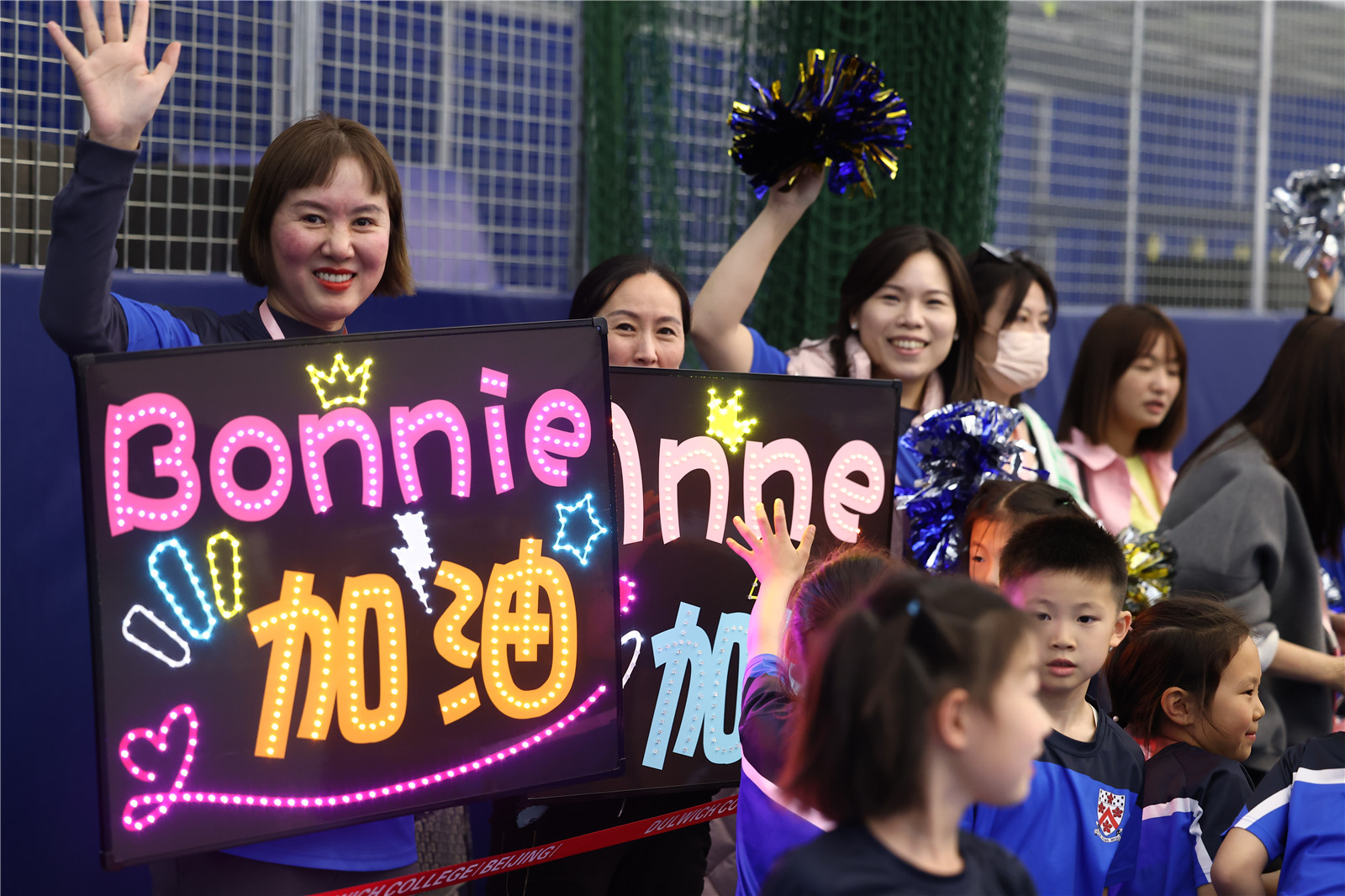Educating Young Students to Develop Lifelong Habits and Character with Sports
At DCB, sport is one of the five pillars of our holistic education. Engagement in sports not only aids in students' physical development; it also helps enhance social, emotional, and time and stress management skills. Competitive sports celebrate the successes of teamwork and resilience while teaching young people how to deal with defeat and lose with grace.
The youngest students in DCB presented their sports learning to the community at the recent DUCKS Teddy Bear Gymnastics and also Sports Day. The students developed excellent personal sports skills and practised collaboration and creation. We spoke to Mr Oliver Du, Primary PE teacher and one of the founding staff at DCB, who shares more in detail the Dulwich difference in PE education and its long-term educational importance for young children. As a big advocate for sports and its benefits to our children, he encourages students to participate in various sports endeavours and suggests parents develop lifelong sports habits with their children.
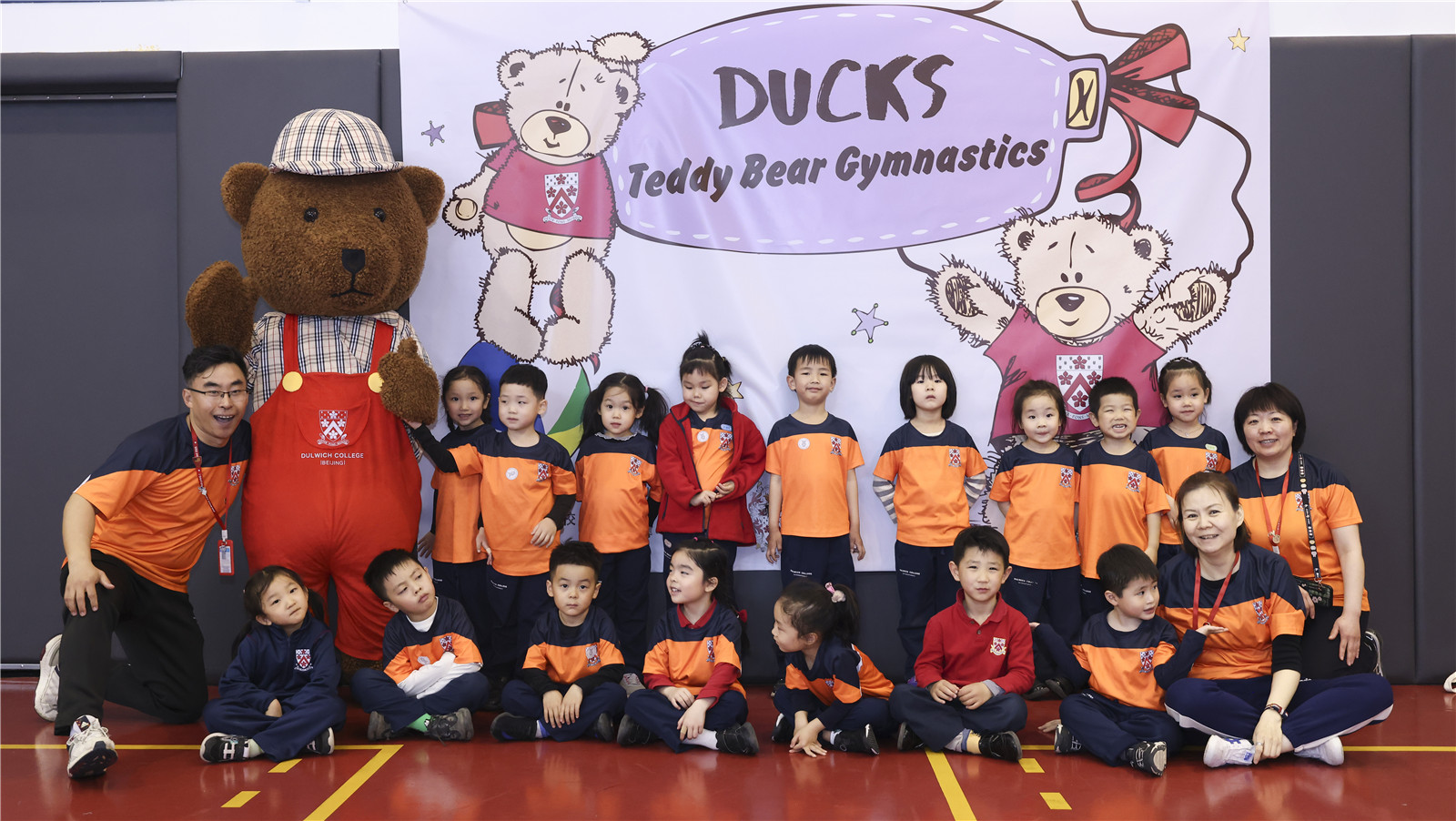
What is the educational importance of sports for younger children?
We all understand that sports are essential for children's overall wellbeing. We hope the students build lifelong sports habits from an early age. This will tremendously help their physical and mental health in their future development.
Additionally, students build their characters with sports. Collaboration with peers and communication with teachers is frequent in almost all sports. This will boost their confidence and social-emotional abilities.
We have witnessed many children being very insecure and unwilling to engage in their initial PE classes. After a period of learning, with the encouragement of the teachers, children have developed the confidence and inner drive that come with their interests in a particular sports activity and thus are increasingly able to engage in classes and sports programmes. We see this regardless of age group, and even the youngest children in DUCKS will develop this positive personal character through learning in sports.
The strong character cultivated in sports will enable the young students to bring the confidence, resilience, and social-emotional ability to learn in other fields and positively impact their future after DCB in universities and society. The positive and healthy traits developed through sports will help the students to live worldwise.
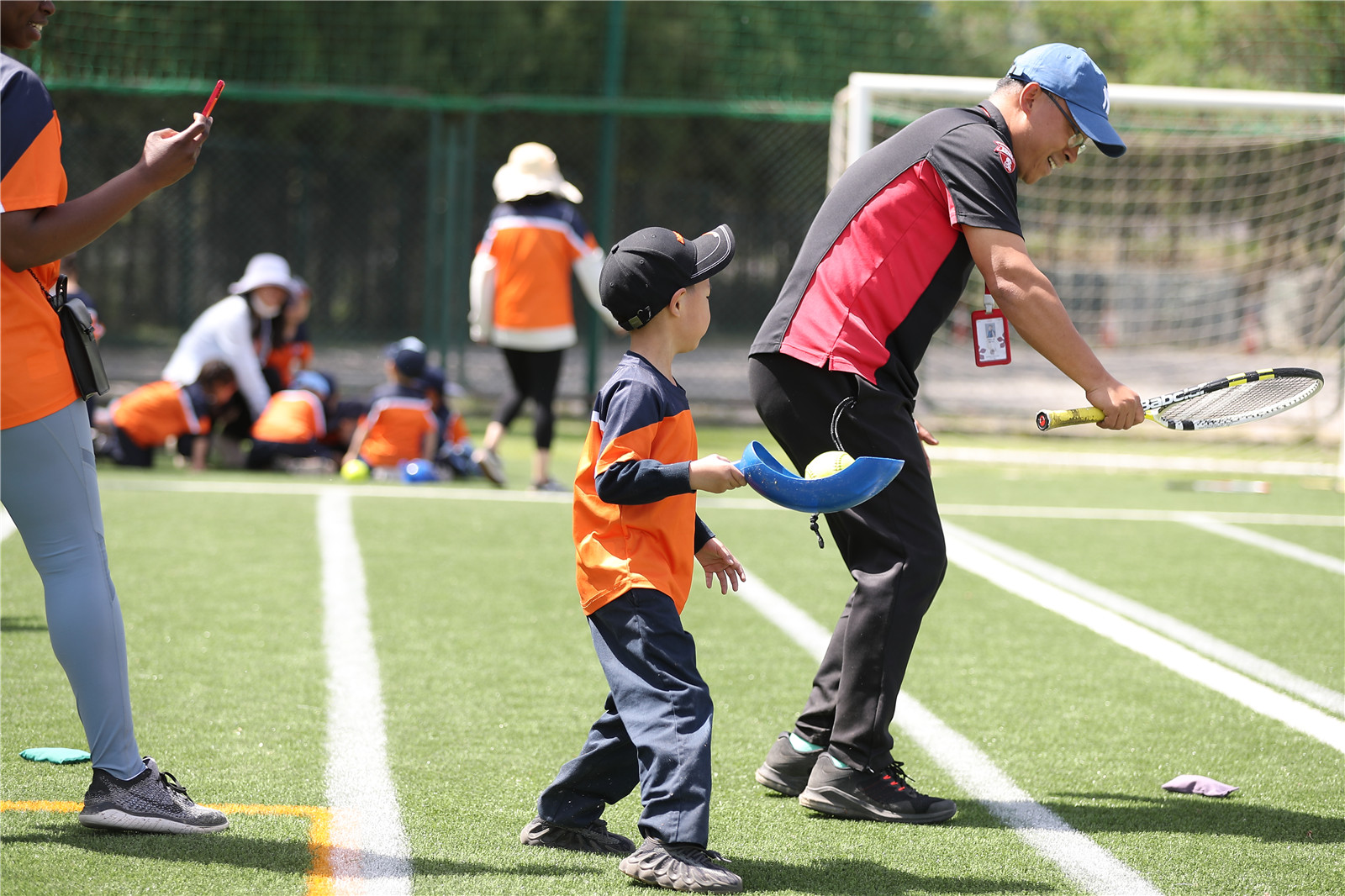
How do you cultivate students' lifelong sports habits in their early years?
The young students' sports learning is conducted with "Play-based learning". We use games for children in DUCKS and Junior School to motivate them to learn fundamental skills such as movement and rhythm. We also include many interactions with peers so that children learn to connect with other students. Students try different things, find their interests, and develop long-term passion and habits during the process.
The popular annual Teddy Bear gymnastics in DUCKS is a good example. Gymnastics is a special course in the British curriculum. It is also a sport that young students generally enjoy. The seemingly fun process of rolling, jumping, and body balancing incorporates sequence and collaboration. In Year 1 and Year 2, students design their sequences in small groups. Students learn the techniques in gymnastics and exercise their collaboration and creation. These learning are applicable in other sports programmes. Students proudly showcase their learning to parents and other school members during the Teddy Bear gymnastics. Most students will not practice gymnastics for life, but the skills and teamwork acquired in the learning can benefit them in various future sports.
What changes are we making in the primary PE learning this year?
I’ve been teaching PE here at DCB since the school first opened. This year, we have refined the teaching structure by the stages, making learning more specialised and focused with year group targets. We now have specialised PE teachers for DUCKS and Junior School, providing detailed age-appropriate guidance for young children's learning. In DUCKS, to support young children, we provide bilingual instructions. With these adjustments, students' learning is more efficient and effective.
We also have experienced and specialised PE teachers in the Junior School. In addition to traditional British sports learning units such as gymnastics, swimming, and track and field, we further enhanced the game sessions in Junior School. Through cross-age collaboration and competition, students improve their abilities in specific sports programmes such as football, volleyball, and basketball. They are also exposed to the opportunities of inter-school games. After refining and enhancing our PE resources this year, dedicated teachers can now lead game sessions. They motivate and instruct young students through games, making teaching more fun and efficient. Last month, a team of Junior School students participated in the DCA games in Shanghai, including swimming, athletics, and football. The inter-school competition has always been a Dulwich tradition, and we are delighted to finally restart these competitions this year. Our goal is to develop students to participate in future sports events such as ISAC and FOBISIA.
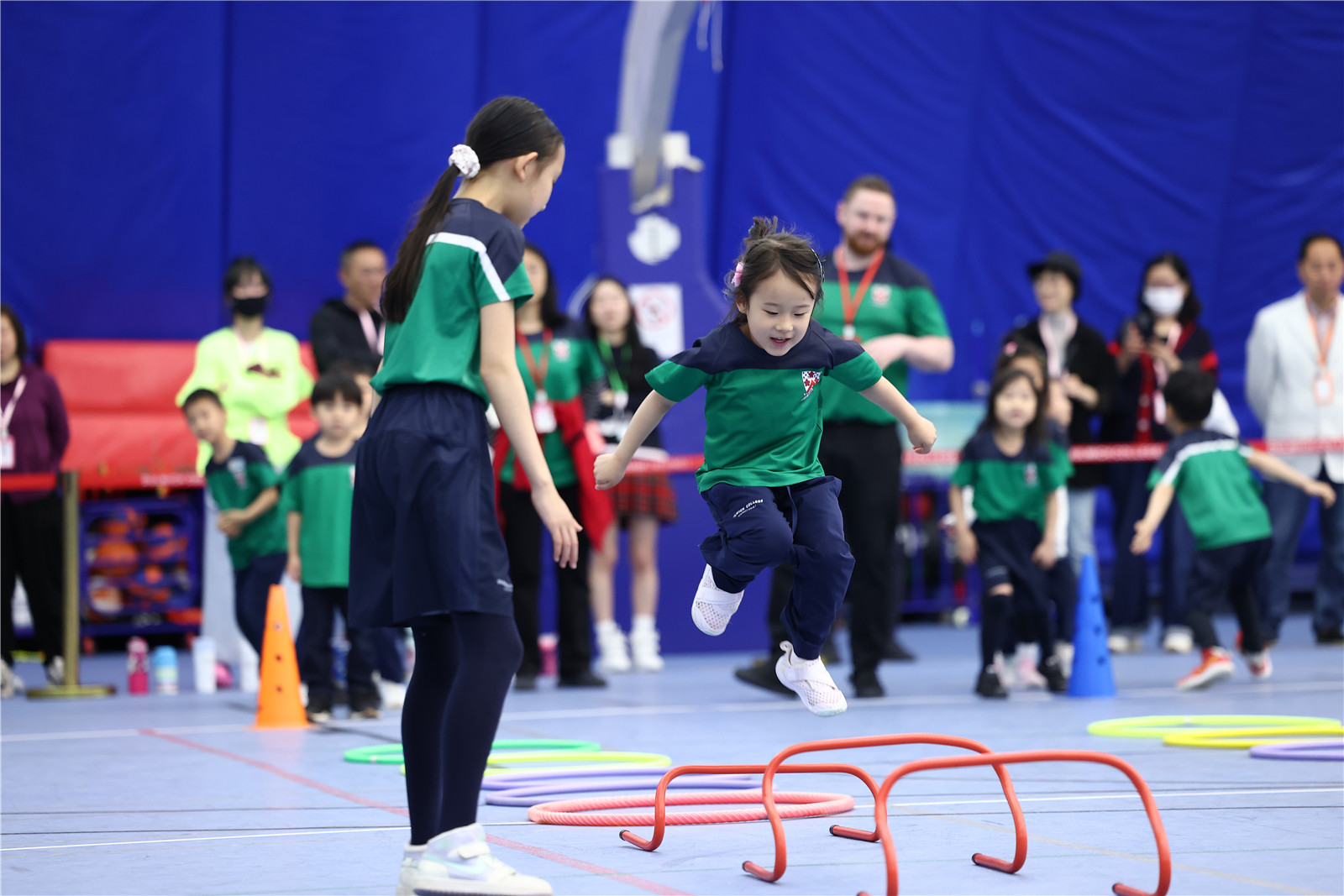
How do our young students practice their leadership and teamwork skills at DCB?
We provide students with ample opportunities to showcase their talents. As mentioned, starting from Year 1, students can use their gymnastics skills to collaborate and create their sequences.
Teamwork is crucial in all sports. Our sports learning is conducted in teaching units, one of which is called "invasion game", which requires students to have physical contact with others and be invasive, such as football and basketball. In this unit, we group students into teams. Students get to choose their team leader, aka the captain. This is an opportunity to guide young children to understand that "leadership" is not just a title or an honour; it is an important role that comes with responsibilities. Captains are responsible for team formation and strategy. They need to discuss and plan with their team to achieve significant progress and win the fierce games.
We encourage the entire student body to participate and assume the responsibilities of team captains. In Year 3 and Year 4, our students are often very engaging and eager to take on leadership roles. Regardless of whether a child's nature is extrovert or introverted, they can exercise their leadership skills through PE learning. Our Director of Sports, Ms Hannah Marshall, once said, "Every individual has something positive they can give. It's not about the wins and losses; it's about the wins and lessons. If students approach every challenge – whether it's on a sports field or in their academic studies – with the mentality that they are going to learn from all experiences, then they will always progress regardless of the result. How students respond to winning and losing is more important than the result itself and enables students to reach their full potential."
Learning is a long-term process, and developing leadership and teamwork skills is no different. Our young students start with bilingual support in DUCKS and grow into competitive little players in Junior School, eager to take on leadership responsibilities in invasion games. This is achieved through trying many different things in learning, with continuous encouragement and guidance from experienced teachers. Dulwich values play a vital role here. In addition to nurturing the student agency to win, students must understand the importance of respect, kindness, integrity and resilience in sports and competitions. That is how you showcase true leadership.
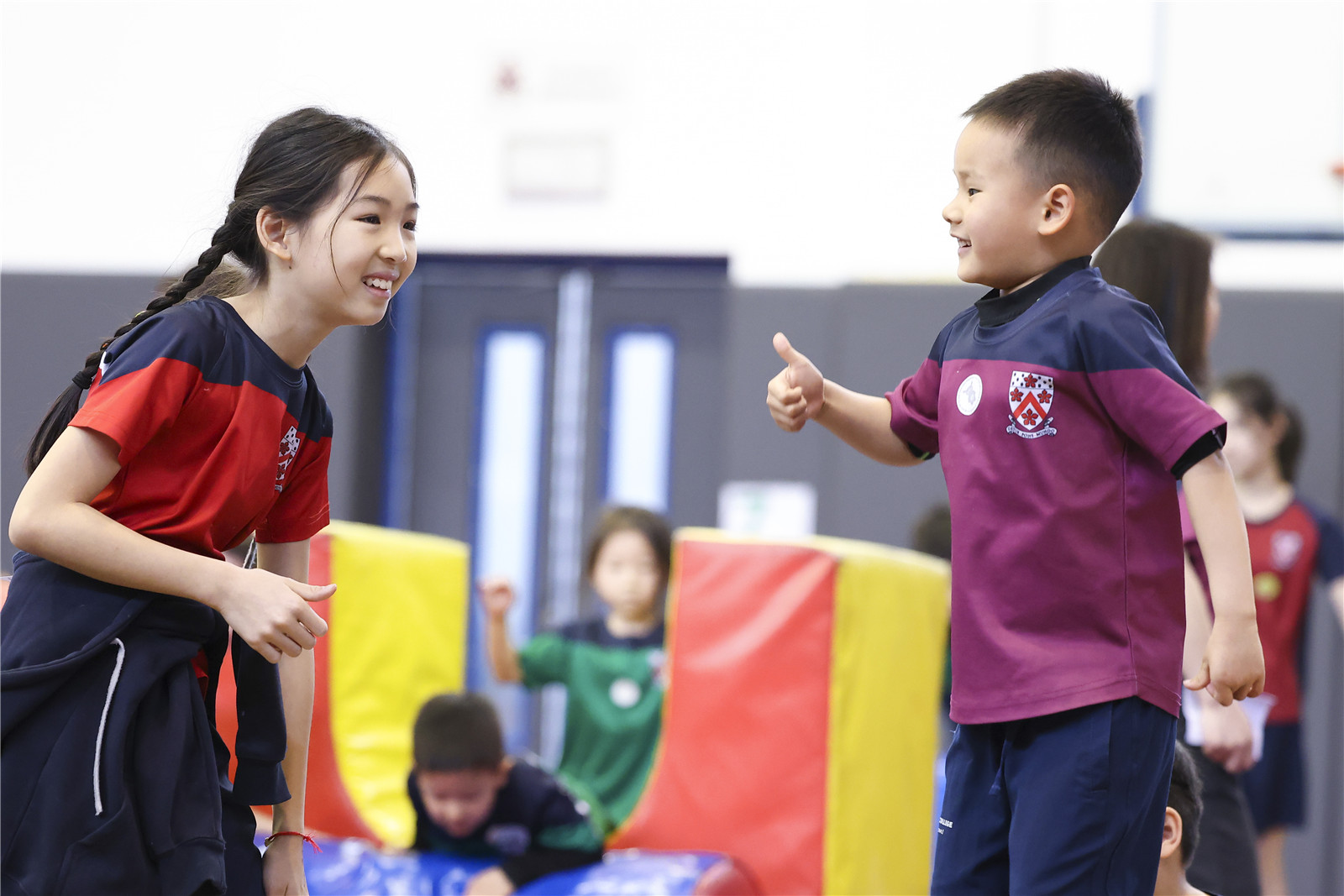
How do we keep DCB’s PE education updated and relevant?
DCB is a learning community where PE teachers, including myself, constantly learn and improve themselves. Our teachers of Sports are experts with extensive international experience, and we share international networks with other schools in the Dulwich family. This allows us to maintain a global mindset, and we are constantly learning the most updated knowledge and skills in PE education. We ensure we bring the most cutting-edge and practical teaching to DCB students.
With the resumption of various sports events after the pandemic, we have resumed interschool, cross-provincial, and even international sports activities. When students visit other places for games, it is also an opportunity for teachers to have in-depth interactions with other teams and PE teachers.
We at DCB are proud of our rich experience and structured high-quality PE education for young children. We are always willing to share our thoughts with other schools and regions.
How can families provide support for young children’s learning in sports?
Our community's support for students is unparalleled. Parents attach great importance to their children's sports learning and are willing to invest time and resources. We are delighted and grateful for this. If parents value and love sports themselves and even have a long-term habit of sports, it will profoundly impact their children. The influence of everyday routine in the family cannot be replaced by PE learning at school.
For young students, their exposure to different sports is relatively limited. Therefore, I encourage parents to take children to various sports activities and look for programmes that suit children's interests and characteristics through extensive experimentation.
My final suggestion is to encourage students to participate in sports team games, such as invasion games. These team sports play irreplaceable roles when developing students' competitive and teamwork spirit. Participating in team sports games can strengthen the parent-school partnership and enhance our community. Students who participate in long-term systematic team sports will also establish a strong will that helps them become more resilient, an invaluable quality for their future academic and career development.
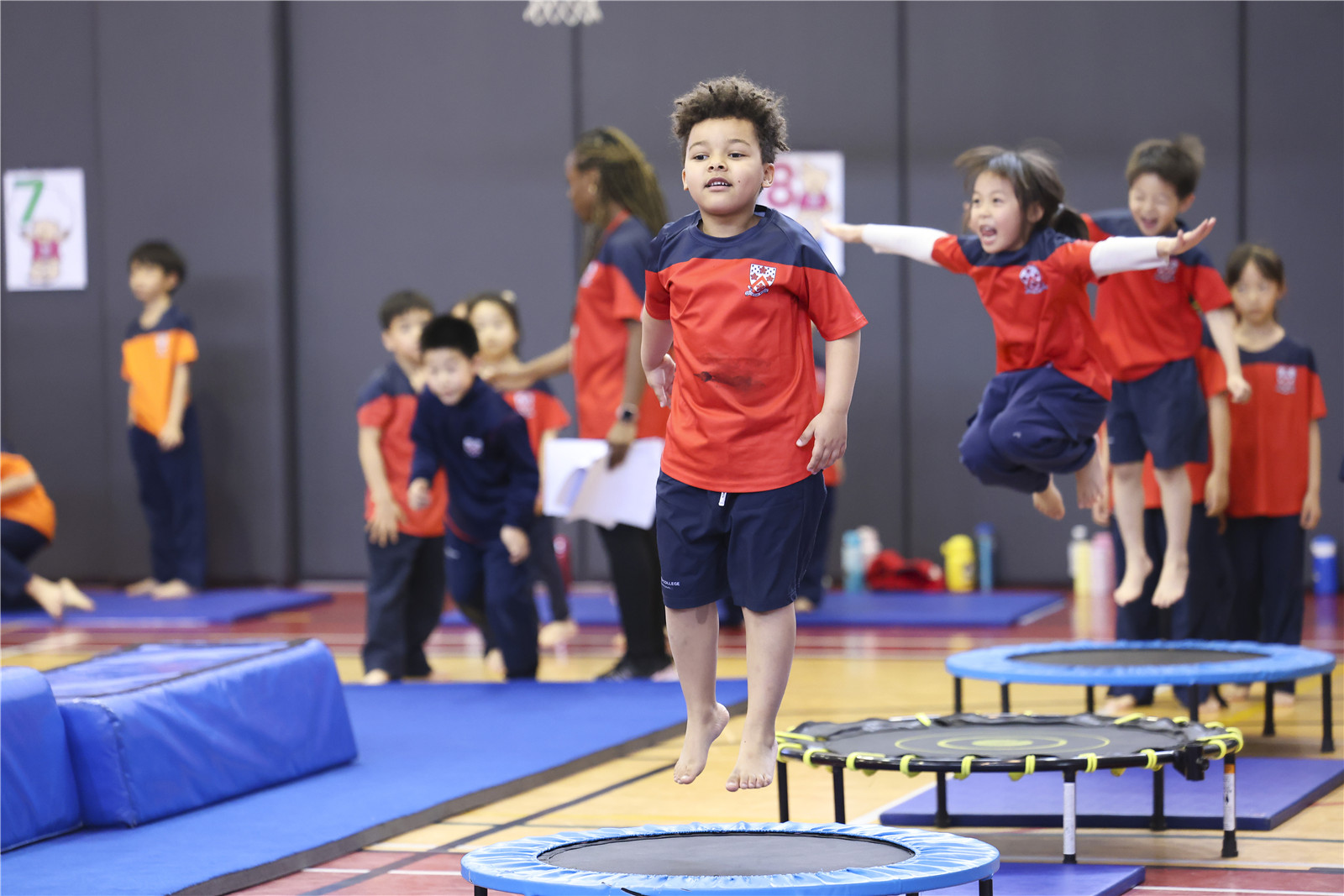
How can families provide support for young children’s learning in sports?
Our community's support for students is unparalleled. Parents attach great importance to their children's sports learning and are willing to invest time and resources. We are delighted and grateful for this. If parents value and love sports themselves and even have a long-term habit of sports, it will profoundly impact their children. The influence of everyday routine in the family cannot be replaced by PE learning at school.
For young students, their exposure to different sports is relatively limited. Therefore, I encourage parents to take children to various sports activities and look for programmes that suit children's interests and characteristics through extensive experimentation.
My final suggestion is to encourage students to participate in sports team games, such as invasion games. These team sports play irreplaceable roles when developing students' fighting and teamwork spirit. Participating in team sports games can strengthen the parent-school partnership and enhance our community. Students who participate in long-term systematic team sports will also establish a strong will that helps them become more resilient, an invaluable quality for their future academic and career development.
